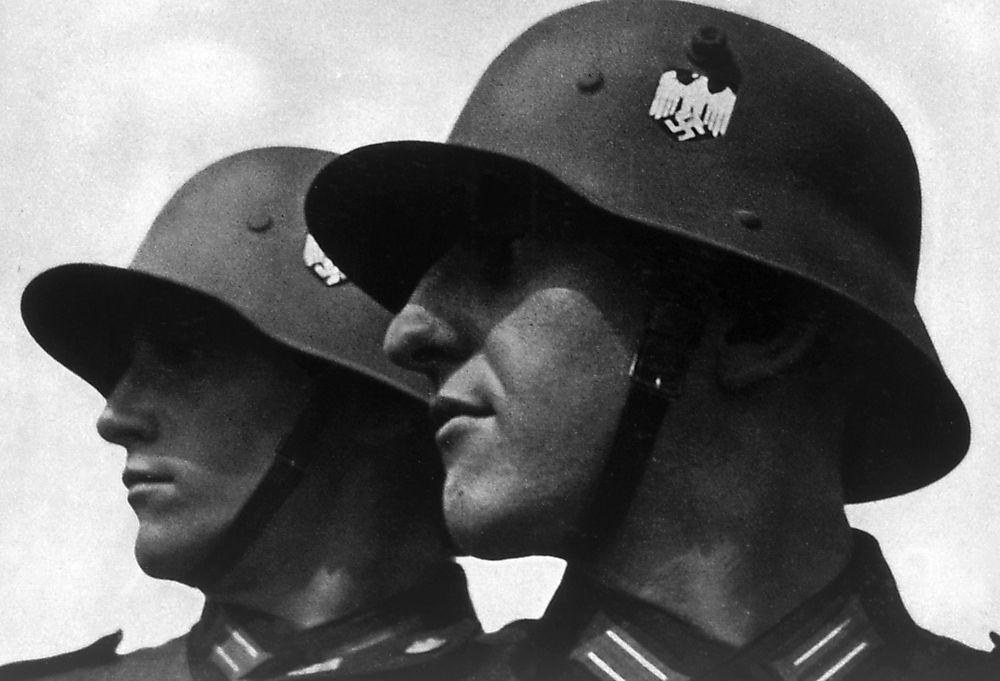What is Fascism?

It is not easy to precisely define an ideology as complex as fascism. Multiple valid definitions can be taken into consideration. Some define fascism as a type of mass movement; others see it as a political philosophy and also a set of politically motivated actions. While there is much debate around the fundamental traits of fascism, the relative consensus regarding the definition is that is it an authoritarian system that aims to promote extreme nationalism.
Nationalism in The Service of Fascism
Fascist governmental systems are centered around the ideas of anti-conservatism, anti-liberalism, and anti-communism, which makes them authoritarian governments rooted in nationalism. In many instances, the ideology gains extensive support by suggesting the need for a rebirth of the nation. The suggestion in this form implies that the current status of the country is of moral deterioration and loss of greatness; hence, it needs cleansing and reconstruction of societal norms.
The nationalistic basis of fascism leaves the door open for the power center to press for a ruling of a single party. The rationalization is that it is a more efficient way of addressing potential threats and problems. This type of political ideology is typically associated with Nazi Germany and the post-World War I regimes that rampaged Italy. Spain, under the leadership of Francisco Franco and Argentina led by Juan Perón, is another two examples of fascist regimes.
Historical Development of Fascism
The early development of fascist theories originated in the 1880s. It coincided with the dissemination of the idea that society as a whole in need of saving. The movement continued to grow over the next couple of decades, spreading the values of anti-democracy, anti-materialism, and anti-rationalism. Finally, with the start of World War I, the first fascist political party emerged.
Mussolini is “credited” for the coining of the term “fascism” in 1919 after making the switch from communism during the early days of WWI. The name itself is considered to connote a militant brotherhood. As the movement spread, Italy started with ethnic cleansing and military offenses, which caught the attention of Hitler in Germany and several other governments. In 1932 and 1933, the political system was adopted by Hungary and Romania, respectively. Lithuania, Yugoslavia, Poland, and Greece dealt with semi-fascist governments. Brazil and Chile were also caught in the turmoil of the dissemination of fascist dogma. Fater the Second World War, the world witnessed the rise of neo-fascism, fragments of which exist in specific countries of the world to this day.
Biological Racism and the Defense of Christianity
Much like with other political and ideological systems, here are differences in implementation and degree of agreement among fascist groups. Various fascist movements have had differing stances in regards to their approval of racist ideas, anti-Semitism, support for nazism, and identification with Christian values. Even though not all those in favor of fascism were also proponents of biological racism, it was a central theme for those who were. Nazism in its core is, and was, extremely racist, in particular towards the Jewish population as they were identified as those responsible for everything that “troubled” Germany throughout history. The culmination of this hatred culminated in the Holocaust.
It is interesting also that the majority of fascists represented themselves as keepers of Christian values, and their job was to defend them from anyone who is perceived as a potential threat. Even though the former was true for German and Italian fascists, their ideological foundation contained many components that conflicted with the beliefs of the traditional Christian church. This was especially true in connection to the Christian values that promote meekness and self-guilt, which was in direct opposition to the violent methods Nazis employed to achieve their racist goals.











